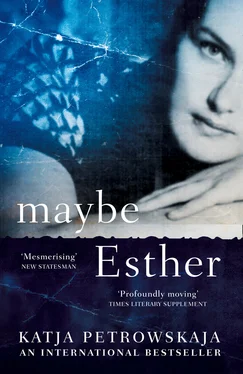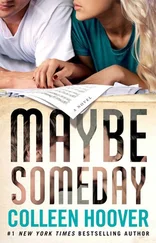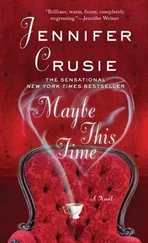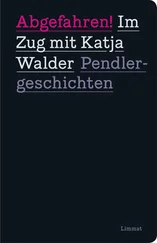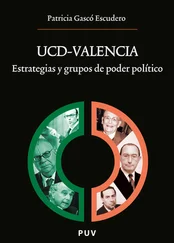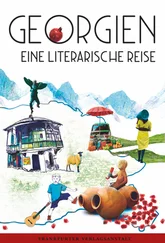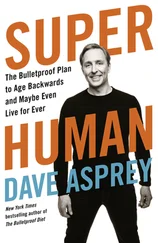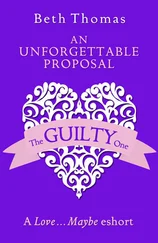He himself was the product of a Soviet metempsychosis, a transmutation of the energies between state, soul, and machine, the perpetual motion of my country. Vil was born in 1924, eight months after Lenin’s death, when the country was expressing its grief by naming factories, cities, and villages after him. Lenin lived, his name made power plant turbines revolve, your name shall be Lenin , and the lightbulbs glow. Hence my grandparents named their firstborn Vil, after the late Vladimir Ilyich Lenin, who was considered the grandfather of all Soviet children, so Lenin had grandchildren, albeit no children. Even fifty years later, we were his grandchildren, and we said Dedushka Lenin, Grandpa Lenin, because everything was in motion but time.
There were all kinds of marvelous creatures, such as Rabfak, Oblmortrest, Komsomol, Molokokoopsoyuz; everything was abbreviated and compounded back then, Mosselprom, Narkompros, or Cheka, the most long-lived organization, which later turned into GPU, NKVD, KGB, FSB. I knew a Ninel, a name formed by spelling Lenin backward; a Rem, a son of Trotskyites, from Revolutsiya Mirovaya—World Revolution; a Roi, from Revolution October International; and I even knew a very nice Stalina.
Maybe the choice of name also had to do with the fact that my grandparents could still speak Yiddish: the Yiddish force of will— vil —shone through, and, in fact, no one in our family was as single-mindedly determined as Vil, who never stopped optimizing his efficiency, and even the authorities went along with him. In 1940, when he applied for a passport in Kiev at the age of sixteen, he got a document with a statement on the fifth line that he was Russian even though his parents were Jewish and had the corresponding note in their passports. With his blond mop of hair, blue eyes, broad shoulders, and narrow hips, Vil looked like the valiant Ivan from the fairy tale. It remains a mystery what mathematical operation could have led a Jewish couple to produce a Russian child, not even at birth, but at a passport agency. As a result, Vilya, as we called him, became a full-fledged Russian and shed the weight of his Jewish background, which receded to a mere detail, a superfluous add-on that was better left unmentioned. Besides, there was no cause to look back; there was only the future, for the world is vast, and knowledge infinite.
Vil’s little brother, my father Miron, born eight years later, carried on his grandfather’s name, Meir, in a modified form, and had the word Jew in his passport. However, for him there was no more Jewishness, so Miron also became a Russian, citizen of a nation of readers. He looked back at his ancestry pensively and with respect, if also a bit bewildered as to what he had to do with it.
The entire Soviet Union was against the force of gravity and dreamed of flying; Vil wanted to build airplanes. Even his body was aerodynamic, small and agile enough to go through life without friction losses. Vil could have stepped right out of the Soviet air force hymn everyone sang back then: We were born to make fairy tales real, to overcome space and expanse, we received steel arm-wings from Reason, our heart is an engine in flames. My heart beat faster and higher when I heard this hymn, fifty years later, especially the rising melody, Ever higher and higher and higher the flight of our metal birds steers, each of our propellers respires the tranquility of our frontiers .
At the age of eighteen Vil went to the front, like his entire class. They were packed into uniforms and sent off without the slightest notion of war, only of heroism. No sooner were they on the front in Mozdok in the Caucasus than the recruits charged into an antitank ditch under crossfire. When they had filled the ditch with their bodies, the tanks rolled over them. Vilya never told his parents exactly what had happened there at Mozdok; the only one to know was his brother Miron, who was eleven at the time. Miron retained this knowledge forever, maybe on behalf of his brother.
When the ditch was searched for survivors, Vil was found way at the bottom, squashed and shot through the groin. A miracle that there had even been a search, my father said.
Vil had severe contusions and traumatic epilepsy, and spent months in hospitals. He found his family in Ashgabat, thousands of miles from the Caucasus. Now a disabled war veteran, he was not beaten down by his injuries; instead, he used them as a motivating force and at the tender age of nineteen became the chairman of the Sports and Conscription Committee of Turkmenistan, the youngest minister in the Soviet Union.
He interrupted his university studies several times when epileptic seizures resulted in weeks of exhaustion. His tongue had to be held to prevent choking; my father kept talking about this tongue he had to hold, and every time he was surprised at his own words. How could Vilya still believe in Soviet power after the antitank ditch? I asked my father, and my father said that no one with doubts survived.
Eventually Vil studied mechanics and mathematics in Leningrad, exchanged air for water, and became a specialist in hydroacoustics. He had to solve the same problems as he had faced with flight, but resistance is stronger in water. Vilya optimized submarines so that the crew could hear everything without being heard, friction was avoided, and secrets kept.
He worked, worked, and worked on his own joyful wisdom, exploring the sound field and its inherent processes and the hydrodynamic problems of turbulence noise and the nonstationary functions of hydroacoustics. He even applied his sense of humor to his dialectical thinking, to his perpetuum mobile. In the name of our peace he worked for the war, but he himself spoke of maintaining equilibrium between forces, as though this was also just a question of mechanics.
Like Vil, I was born as a part of the state’s metabolic cycle, a hundred years after Lenin. I celebrated my birthdays together with Lenin, minus a hundred. I knew this would always help me to find my coordinates in the history of the world, but the vitality of the up-and-coming young state that was given to my uncle by birth had long since withered away. When I seemed doomed not to come up with solutions to his perpetuum mobile problems, I sensed how alien we were to each other. My uncle knew that I would never solve the problems he posed. If a solution were to be found for the perpetuum mobile, all disparities would be eliminated, as would questions of proximity, warmth, doubt, and possibly even kinship, because in Vil’s problems, everything human was regarded as a friction loss, as an obstacle to the incessant motion of hidden energies, my uncle’s dream. Maybe Vilya wasn’t joking at all— Abstract thinking isn’t your forte! —when he left the research field of friction losses to me, in his stead.
I spent a large part of my childhood in Kiev in a new fourteen-floor apartment house on the left bank of the Dnieper, in a neighborhood that developed after the war and seemed to have no past, only a tidy future. But “ no one is forgotten and nothing is forgotten ,” as the poet Olga Bergholz wrote in remembrance of the one million casualties of the Siege of Leningrad. This line was borne in the heart, and replaced memory throughout the land. There was no escaping it since it assumed the role of prophecy, with its revealed truth and concealed lies; we were called on to forget no one and nothing in order that we forget who or what was forgotten. Our backyard games extended beyond jump rope and dodge ball to endless rounds of a cops-and-robbers-like game of “us” against “the fascists,” thirty-five years after the war.
My street was named Ulitsa Florentsii, in honor of our beautiful Italian sister city. We were fortunate to live there because our address conveyed the beauty of Italy and our connection to the world of beauty, meaning that we too could be beautiful, that we too were raised in the spirit of the Renaissance to experience a rebirth and be situated in the center of the universe, albeit behind the Iron Curtain. The ceremonial opening of Ulitsa Florentsii took place in 1975, and a plaque was attached to our building. The building belonged to a Soviet ministry, so we called it Sovmin House, and in comparison with the nine-story prefabricated buildings in the Soviet barracks style that surrounded our courtyard, our Sovmin house was a luxury in brick. However, no ministers actually lived here; the residents were civil servants of the state apparatus, middle managers, low-ranking supervisors, teachers with well-worn book collections, cleaning ladies, cooks, secretaries, electricians, engineers. We never found out what we had done to merit an apartment in this socialist paradise—four rooms with built-in closets, an alcove for the refrigerator, two loggias, and attic space. In the first weeks after we moved in, my father met in the elevator a KGB case officer who had interrogated him ten years earlier, and he came home with a variant of “ My home is my castle .” My home is their castle, he said.
Читать дальше
